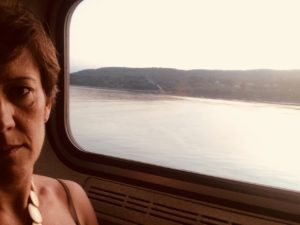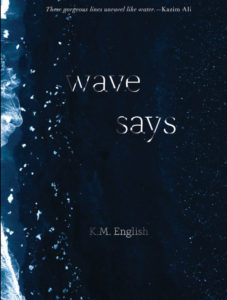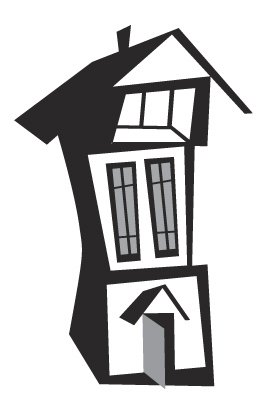K.M. ENGLISH is the author of Wave Says, a finalist for the Sawtooth Prize, Kathryn A. Morton Prize, and Test Site Book Prize, and a semifinalist for the CSU First Book Prize. Her work appears in places such as Black Warrior Review, Bone Bouquet, and Interim, and she has received fellowships and scholarships from the Community of Writers at Squaw Valley and the Vermont Studio Center. is the author of Wave Says, a finalist for the Sawtooth Prize, Kathryn A. Morton Prize, and Test Site Book Prize, and a semifinalist for the CSU First Book Prize. Her work appears in places such as Black Warrior Review, Bone Bouquet, and Interim, and she has received fellowships and scholarships from the Community of Writers at Squaw Valley and the Vermont Studio Center. |
 Book Title, Press, Year of Publication:
Book Title, Press, Year of Publication:
Wave Says, Kore Press, 2021
Synopsis: Wave Says enacts a theory of energies-in-presence by collapsing perceived borders between interior/exterior, past/present, and the living/dead and rendering a relational, distinctly feminist matrix of language, history, feeling, body, and space.
What do you think makes your book (or any book) a “project book”?
I don’t want to speak for anyone else’s book, but I experience Wave Says as a system—a wave breaking back onto itself, or a hurricane in reverse that turns inward towards its eye—so I guess the way the book moves and also how I went about composing it make it a candidate for that label.
Why this subject (or constraint)?
I wrote a poem (see below) and then kept writing more poems that seemed to be talking to that poem and to one another.
Was your project defined before you started writing? To what degree did it develop organically as you added poems?
My project was not defined before I started writing, but one day I wrote a compact little 5-line lyric (it appears as a proem in Wave Says), and that poem told me it had a larger something inside it. I didn’t depart from there insisting upon a book, but I did commit (unconsciously for the most part) to probing what I felt, heard, and sensed in those lines and over time the book built itself around them as a sort of sustained investigation and response. It wasn’t as pointed as all that, but those lines were an invitation I accepted, and I experience the rest of the book as a dive into the wreck (to borrow Rich’s phrase and metaphor). And since the last line of that poem is “wave would say,” I knew the wave would at some point have to speak for itself. Which it does in the long title poem that ends the book.
Did you allow yourself to break your own rules?
The words “allow” and “rules” set off a little alarm in me, especially inside a conversation about my creative process. Working with received forms and constraints can be all kinds of fun, of course, but that question makes me defensive. Which is me protecting my right to do whatever I feel like doing in and with my poems. You know, art-making is the only area in my life where I can access the feeling of being unencumbered by rules, and my defensiveness feels like a survival thing to me.
Did you fully immerse yourself in writing this project book, or did you allow yourself to work on other things?
I wrote most of this book in the early mornings when my family was sleeping. Those conditions changed after I had my second baby because babies don’t give a crap about art, and it took me another two years from that point to write the title poem and shape it all up. I’d allow myself to work on ten things at once—I am self-indulgent and scattered by nature—but at this stage in my kids’ lives, allowances are in the hands of a higher authority (theirs).
As a reader, are you drawn to project books? What project books have influenced you or have you enjoyed, and what do you think makes those books successful?
I’m drawn to any and all long forms, series, book-length poems, and obsessive projects in general. That interest is a reflection of my brain, which is swampish—by which I mean, highly permeable and prone to dwelling and wading in muck. In my 20s I was trying to write a book-length poem about my hometown Troy, NY, which was about Troy, NY in the way that Moby-Dick is a book about whaling. In any case I spent a lot of time with Homer and epic poetry in those years, and then back up through time and other long form traditions. I can work on a single page or line and enjoy that completely, but I am usually more or less unconsciously working across pages at the same time. With this book, I observed my mind working with refraction, repetition, hauntings, loops, echoes, suspensions, and reverb, and I enjoyed exploring those movements on paper.
A very short list of writers I swamp(ed) with: Charles Olson, Muriel Rukeyser, C.D. Wright, Bhanu Kapil, Julie Carr, Daniel Borzutzky, M. NourbeSe Philip, Shane McCrae, Alice Notley, Laurie Scheck, Cole Swensen, Claudia Rankine, and Don Mee Choi. Susan AND Fanny Howe! I am right now reading Diane Seuss’s frank: sonnets, and the way she stretches the form across the parts and whole of that book is breaking my heart in multiple places.
What makes such a book successful seems entirely dependent upon which book it is we’re talking about.
What effect do you think the prevalence of project books is having on poetry in general?
I don’t pay too much attention to how much or little space these kinds of books occupy within the world of contemporary US poetry because my life exists outside the academy and the poetry business, which just means that I don’t feel like I have to keep track of that kind of stuff. That said, I surely see more and more contemporary US poets pushing on and expanding notions of what a poetry book can be. I love seeing things like The Work-Shy by Blunt Research Group and Divya Victor’s CURB, to offer just two examples of books that push against conventional ideas of what the form can and cannot hold. The art is always bigger than we are, and I am drawn to those edges.
Have you abandoned other project attempts? How did you know it was time to let go? What happens to project poems that never amass a full-length book?
Yes to abandonment (see: Troy project), which I have not at all let go of because I am not any good at letting go (see: swamp). What does happen to those poems? For me, the afterlife of those poems is what they taught me and whatever it is that remains lodged in various parts of my body and psyche. I’m sure some aspects of them were used to create whatever Wave Says is. I’ll either go back to that project at some point or I won’t, but since “going back” isn’t actually a backwards movement, who knows what any future potential iteration of them might look like. I sure don’t, and that’s the fun part. What is a poem anyway?
After completing a project, how did you transition into writing something new? What are you working on now? Another project?
I transition into writing something new the same way I do most everything else in my life, by worrying and waiting. I didn’t have to wait too long in this particular instance because the generative seed of my current manuscript arrived in a mundane moment with my kids a few months after I finished Wave Says. This manuscript, A Movable Bed, is also a book-length project but of a different sort. While Wave Says is easy to categorize as lyric poetry, this new one is messy and works across different registers. It’s built on top of a failed fictional narrative and from there, it is variously docu-poetic, using lyrical prose and fragments, data, social critique, self-incrimination, and images to try and do what it’s trying to do.
What advice can you offer other writers, particularly emerging writers or poetry students who may be using the project book as a guiding principle for their own work?
Be skeptical of advice? I guess I would say only use xyz as a guiding principle if that’s what your work needs you to do. I think it’s like listening to plants and/or babies. Trust that you know what forms you and your art need. Or at least, trust that you have the authority and agency to go looking for those forms. Trust that form is as open as we allow ourselves to be. Ditto whatever you want to call poetry or literature or art. Bhanu Kapil articulates that point over and over again in her work, and I think every artist is engaged in some version of this journey, whether it’s a poet with a line or a book-length project or a dancer with a body and space and time. Or any other kind of artist with x materials and y desires.

